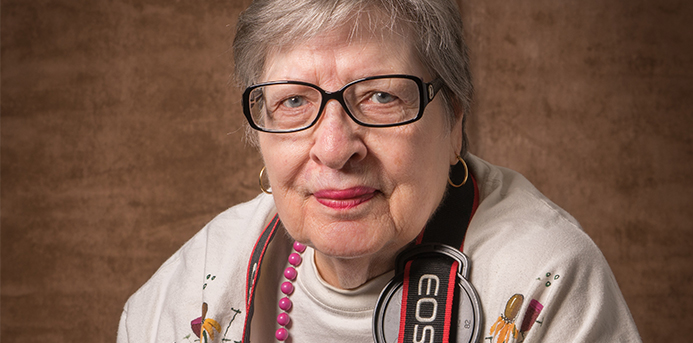A fascinating study revealed interesting brain characteristics in older adults who aren’t aging like most. So-called SuperAgers have cognitive abilities like those of much younger people.
Scientists at Northwestern’s Cognitive Neurology and Alzheimer’s Disease Center at the Feinberg School of Medicine are working to understand why some older adults’ brains function like those of people 20 to 30 years younger.
According to the U.S. Census Bureau, “In 2050, the population aged 65 and over is projected to be 83.7 million, almost double its estimated population of 43.1 million in 2012.” As the population ages, many older adults deal with dementia or Alzheimer’s disease, while others continue to lead active, productive lives. Researchers at NU hope to uncover ways to improve normal aging and possibly treat dementia.
SuperAgers are people over age 80 who have memories of healthy 50- to 60-year-olds. Started in 2007, the SuperAgers research team focused exclusively on memory and thinking ability, rather than physical health. The National Institutes of Health recently awarded a grant to continue research. Scientists are working to discover the unique characteristics of the SuperAgers by studying their brains. Research is showing that the SuperAger brain is protected from the atrophy normally associated with aging, dementia and Alzheimer’s disease.
“This is the upper echelon of people over the age of 80 when it comes to memory performance,” explains Dr. Emily Rogalski, the lead investigator on the project.
Participants in the study must be 80 years or older with exceptional memories and cognitive abilities. Candidates for the SuperAgers are given a baseline evaluation including a blood draw, neurological exam, MRI brain scan, and detailed medical and family histories. One of the key tests involves reciting memorized words. Candidates are read a list of 12 unrelated words and asked to recall the words 20 minutes later. Return visits are scheduled every two years. Participants are asked to consider brain donation at the time of death.
Researchers used brain imaging to reveal three brain characteristics in the SuperAgers that distinguish them from others:
1. The region of anterior cingulate cortex, associated with memory and attention, was thicker in SuperAgers compared with healthy 50- to 65-year-olds.
2. SuperAgers showed a lower frequency of Alzheimer-type neurofibrillary tangles, making them less vulnerable to the disease.
3. The study also revealed a higher supply of von Economo, a neuron that has been linked with intelligence.
While the reasons for these brain differences are not yet known, researchers hope to discover the brain structure, genetic or lifestyle factors that may contribute to the SuperAger brain. There may be more than one way to achieve the SuperAger status.
“Participants are generally very engaged … working, volunteering, teaching, taking classes, and socially active,” Rogalski says.
She notes that while some participants exercise, others smoke, drink, and many have had major health problems like cancer and heart disease. Not all are highly educated. Some have no children. Not all come from a line of long-living relatives.
Elizabeth Lautner, 83, who lives in a retirement community outside San Antonio, came upon the SuperAgers study online. “When I hear about an opportunity, I jump in,” Lautner says.
After some initial tests over the phone, like reciting the alphabet and numbers backward and forward, she was invited to Chicago for five afternoons of testing. She visited researchers again last year.
“I feel so blessed to have such a good memory and am happy to help out with the study,” she says.
Lautner lost her husband in 1969 and a son in 1974. With only a high school education, she worked as a pilot, dog trainer and photographer. She is extremely active, still taking photographs, working as a cashier in the dining room at the retirement community where she lives, teaching photo editing, playing dominoes four times a week, volunteering, learning to read music, and writing short stories.
“My mind is still very active, even though my body is aging,” Lautner says.
While over 1,000 people have expressed interest in the SuperAgers study, fewer than 100 have qualified. These SuperAgers are truly the “brain elite” of the over-80 crowd.
Are you, a parent or friend a candidate for the SuperAger study? Contact the SuperAging study coordinator at 312-503-2716 or agingresearch@northwestern.edu. Your healthy brain may help advance the science of aging, leading to a better quality of life for all.
More from Make It Better:

